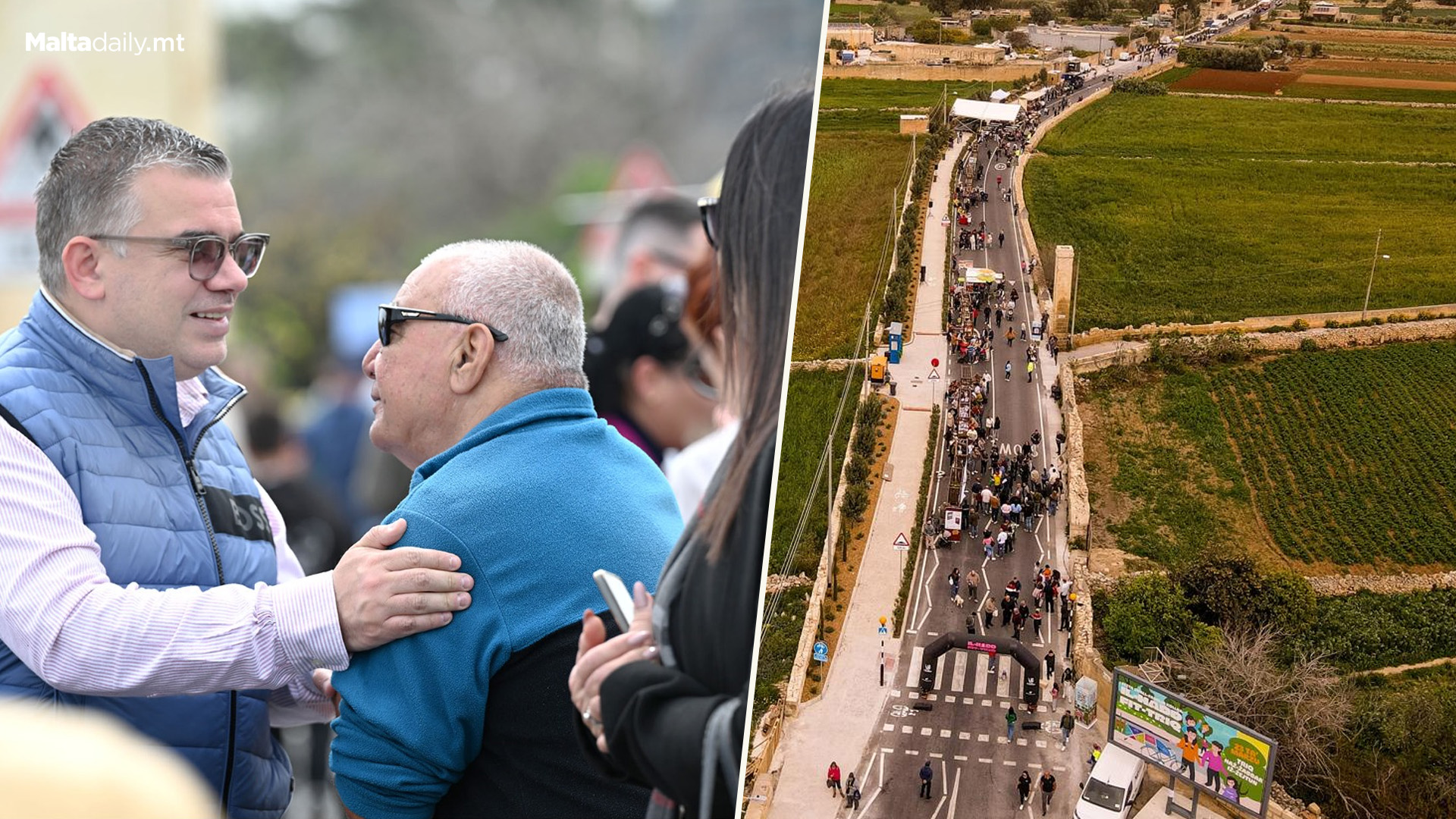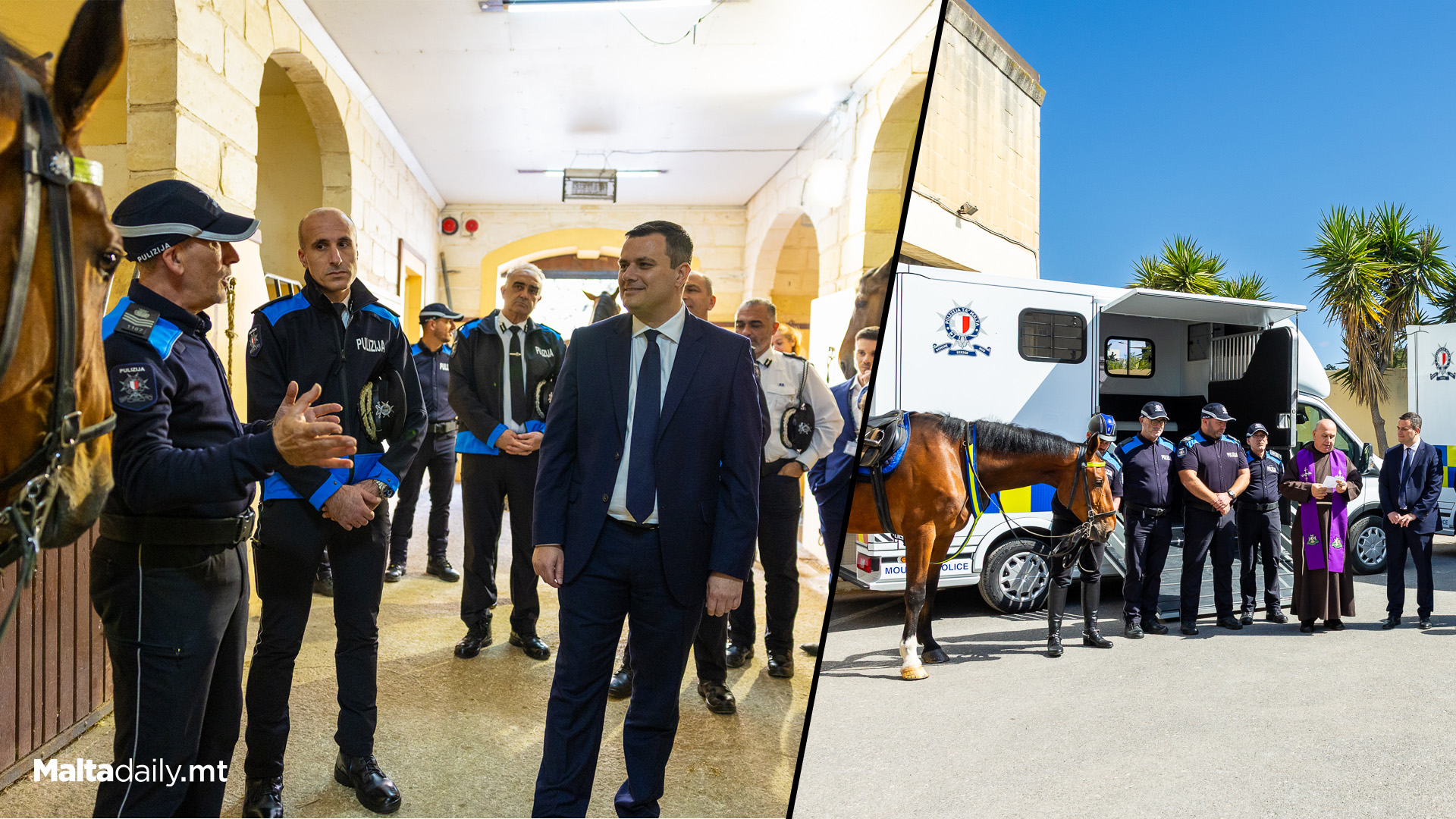
Malta’s Narrowest Point Measures Just 1.2 Kilometres
Inauguration Of 1st Project Under ‘Vjal Kulħadd’ Initiative

Last weekend, Minister for Transport, Infrastructure, and Public Works, Chris Bonett, announced the completion of the first project under the “Vjal Kulħadd” initiative. This project, carried out on Żabbar Road, connects Żejtun to Ħaż-Żabbar. The initiative aims to identify roads and areas across the country that, in collaboration with local councils, can be enhanced to provide a better environment for local communities.
Over the past months, extensive works have been undertaken on this road to create a more aesthetically pleasing and safer travel experience. The project included the development of a pedestrian- and cyclist-friendly zone spanning over one kilometre, surrounded by trees and indigenous plants. A new reservoir has also been constructed to tackle flooding issues in the area, ensuring that collected rainwater can be used by local farmers for irrigation. The final phase of the project included the installation of a modern lighting system, resurfacing the road with a new layer of asphalt, and implementing new measures to ensure safe speed limits.
This project was inaugurated in a unique way. Infrastructure Malta, in collaboration with various local organisations, hosted an event in which the road was temporarily closed to vehicular access for the day, allowing families to enjoy the new space. The event featured several initiatives, including a dedicated cycling training area where both children and adults could learn to ride under the guidance of experienced instructors.
Minister Bonett expressed his satisfaction with the transformation, highlighting how this road has shifted from being solely vehicle-oriented to a safe and enjoyable passage for those opting for alternative transport methods such as walking and cycling. He extended his gratitude to all workers involved in the project and to local residents for their full cooperation.
He noted that the strong attendance at the event reflects public support for future projects promoting active lifestyles through pedestrian zones, cycling lanes, and new green spaces. In addition to the environmental benefits, with a significant number of new trees and shrubs planted along the road, the project also introduced key infrastructure improvements to address flooding concerns, ensuring water storage for local farmers. “Initiatives like these clearly demonstrate the government’s vision of placing people at the heart of the country’s infrastructure,” Minister Bonett stated.
Steve Ellul, Chief Executive Officer of Infrastructure Malta, explained that this project not only created a new open space but also resolved long-standing issues such as flooding. He emphasised that major works, including road surface reconstruction, were carried out around the clock to minimise disruption for commuters. “In the coming months, we will see more roads being revitalised through this initiative, promoting alternative mobility and creating additional open spaces in the heart of our communities,” Ellul added.
With an investment exceeding ten million euros, the first phase of the “Vjal Kulħadd” initiative is set to transform 14 different areas in various towns and villages across Malta by the end of 2026.
#MaltaDaily
Clocks Will Go Forward 1 Hour On Sunday 30th March

On Sunday, 30 March at 02:00 CET, clocks will move forward by one hour, marking the start of Daylight Saving Time (DST).
If you struggle to remember which way the clocks change, the saying “Spring forward, fall back” might help. With the arrival of spring, the Northern Hemisphere now enjoys over 12 hours of daylight.
The time change means sunrise will appear an hour later, making mornings temporarily darker, but evenings will feel longer with later sunsets.
By the summer solstice in June, some northern regions of Europe will experience nearly 19 hours of daylight. Daylight Saving Time was first introduced in Germany in 1916 as a way to conserve energy during World War I, and other countries quickly followed.
Some places even experimented with double DST, moving clocks forward by two hours in summer. Supporters argue that lighter evenings reduce traffic accidents, while critics highlight the disruption to sleep patterns and mental well-being, often comparing it to minor jet lag.
Fortunately, most modern devices update automatically. Different countries observe DST on varying dates—this year, the US changed clocks on 9 March, while Australia will move back an hour on 6 April.
For shift workers, the time change means one hour less on duty that night.
#MaltaDaily
Two New Horses & Carriers As Part Of Investment In Police’s Mounted Section

The Malta Police Force’s Mounted Section has undergone recent enhancements as part of broader modernisation efforts, aligning with its Transformation Strategy 2020-2025.
The two new horse-carriers valued at over €200,000, have been procured. These custom-built platforms can safely transport two horses at a time and two new horses have been introduced to the team, brought over from Ireland at a cost of more than €30,000.
The Malta Police’s Mounted Section is responsible for a variety of duties, including ceremonial roles, community engagement, and patrolling. Their presence not only enhances visibility but also fosters approachability within the community.
The retiring horses will be donated to the Second Chance Horse Sanctuary in the UK, where they will be given a well-earned rest and cared for in their retirement.
“This investment in the Mounted Section complements other investments in resources and tools by the Malta Police over the recent years.” – Police Commissioner Angelo Gafà
#MaltaDaily






